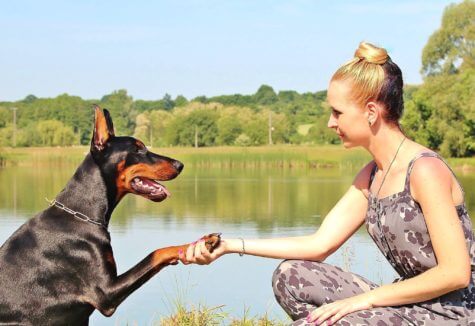VIENNA — They say sharing is caring, and when it comes to dogs, they sure do care to share. A study finds that dogs, like humans, exhibit generosity with their canine “friends” by sharing their beloved treats — and are eager to do so.
The study, published recently in the journal PLOS ONE, was conducted by behavioral biologists from the Messerli Research Institute at Vetmeduni Vienna in Austria. Researchers found that not only do dogs take pleasure in sharing treats with pups they’re familiar with, but simply having any dog in their presence increases their desire to share.
The finding had been determined in a simpler study by the same researchers in the past, but this latest test increased the complexity of the experiment and now included dogs that the test dogs had never seen before.
“This time we not only tested a different experimental set-up but also the level of difficulty,” lead researcher Rachel Dale says in a release. “The dogs were first trained to touch a token in exchange for a food reward for themselves. They were then trained to recognize two more tokens: one that resulted in a reward being delivered to a partner dog and another which did not.”
Dogs prefer playmates they already know
The test dogs were presented with several scenarios. One had them able to see the other dog in an adjacent enclosure after they were shown how to release a treat into their enclosure and the adjacent one. A second had the other dog in the same enclosure as the test dog.
Another experiment had them perform the test alone. After each experiment, the canines were also given the chance to reward themselves with a treat by touching a token that distributed another treat just to their enclosure.
Researchers determined that the test dogs consistently showed a desire to share treats with the dogs they were familiar with, but were three times less likely to share with a new playmate. They also found that the test dogs were still motivated to share a reward whether the other dog was in the adjacent enclosure or in the testing enclosure with them.
And when they were alone? The number of rewards decreased, showing the desire to share was less likely to occur. It’s a phenomenon known as “social facilitation,” which didn’t occur in the team’s first study.
So next time you’re walking your dog and you notice that all-too-familiar jolt of excitement upon the sighting of another neighborhood Fido, perhaps it’s that natural bond at work. Let us know if you agree or disagree with this study — have you recognized this behavior in your pet?

Dog’s are the best.
My cat says to go eat some kitty litter.